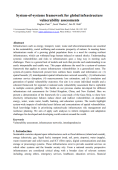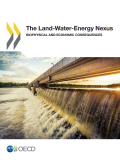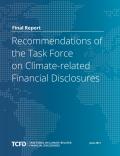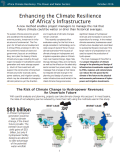
To sustain Africa’s economic growth and accelerate the eradication of extreme poverty, investment in infrastructure is fundamental. The Program for Infrastructure Development in Africa (PIDA), endorsed in 2012 by the continent’s heads of state and government, lays out an ambitious long- term plan for closing Africa’s infrastructure gap, including through major increases in hydroelectric power generation and water storage capacity. Much of this investment will support the construction of long-lived infrastructure (for example, dams, power stations, and irrigation canals), which may be vulnerable to changes in climatic patterns—yet the direction and magnitude of climatic changes remain uncertain. This recently completed effort evaluates—using for the first time a single consistent methodology and a wide range of state-of-the-art future climate scenarios—the impacts of climate change on hydropower and irrigation expansion plans in Africa’s main river basins (Congo, Niger, Nile, Orange, Senegal, Volta, and Zambezi), as well as the effects on the electricity sector across four power pools.
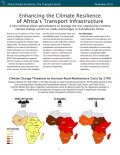
Roads are a key asset for Africa - they connect villages to economic centers, people to hospitals, children to schools and goods to markets facilitating trade. This study considered 2.8 million km of roads in Sub-Saharan Africa, including new road construction outlined in the Programme for Infrastructure Development in Africa (PIDA) and assessed the impact of climate change on roads and bridges. Climate change is expected to substantially increase disruption time of the network, shorten their rehabilitation life-cycle, and increase repair and rehabilitation costs. The study evaluates the economics of engineering solutions to build resilience to climate change impacts due to flooding, precipitation, and temperature and develops a methodology to assist decision makers in identifying the most cost-effective adaptation approach, comparing the cost of inaction (reactive response) to the net cost of investments in adaptation (proactive adaptation).
Key Messages:
